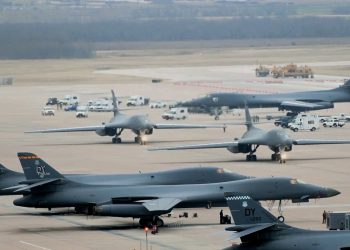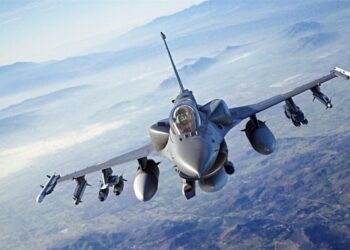Air Force News Agency,
WASHINGTON: Defending air and space is what the Air Force has done admirably for 60 years, and it will protect information in the cyberspace domain in the future with the establishment of the Air Force Cyber Command.
“The mission of the Air Force is to provide sovereign options for the defense of the nation and its global interest to fly and fight in air, space and cyberspace,” said Lt. Gen. Robert J. Elder Jr., commander of the 8th Air Force when addressing top air force leaders from around the world Sept. 25 at the Global Air Chiefs Conference in Washington. “Cyberspace is increasingly critical and inseparable from our national power and interests.”
The command's objective is to ensure U.S. military strategic superiority in cyberspace using science and technology, partnering, law and policy, intelligence support and trained personnel. Command members will deter adversaries and support homeland security, critical infrastructure protection and civil support operations.
With many nations relying more and more on information flowing through the cyber domain, their information can become vulnerable to a cyberspace attack, said General Elder, who is also the Joint Functional Component Commander for Global Strike and Integration, U.S. Strategic Command.
This was the case in Estonia when the country endured attacks on private and public Web sites in April and May. It raised the question as to what other critical areas could come under attack and pose security risks, the general said.
“We recognize if we lose cyber, we lose our capability in air and space operations,” he said. “Cyber dominance is critical for our Air Force and nation.”
Some defense tactics to minimize cyber risks include jam-resistant communications, electro-magnetic pulse resistant electronics and adaptive firewalls, database wrappers and database encryption, the general said.
Offensive approaches include electromagnetic spectrum jamming, sensor dazzlers and networked system strikes.
“If cyber is restrictive, it would be detrimental to the way you operate,” General Elder said. “That is why all elements of cyber must be defended.”
The general identified five focus areas to defend cyber:
- Mission and security balance
- Cyber force training and career development of Airmen
- Systems and software design
- Data integration for situational awareness and command/control
- Partnerships with industry and academia
According to the general, this does not imply the Air Force will control cyberspace by any means. What it will do is secure the benefits of the domain on which many people rely and where war fighting already takes place on U.S. communication and computer systems.
“We are starting to practice our capabilities,” General Elder said. “We are flying and fighting in cyberspace today.”
Also during the conference, Air Force Secretary Michael W. Wynne named the new commander of Air Force Cyber Command Provisional as Maj. Gen. William T. Lord. General Lord served as the director of cyberspace transformation and strategy at Air Force headquarters, where he worked on establishing the new command.
This new temporary command has been created to complete all necessary actions to stand up the permanent major command. Until the final command is created, day-to-day operations in Cyberspace will continue to be conducted by the 8th Air Force, and commanded by General Elder.









